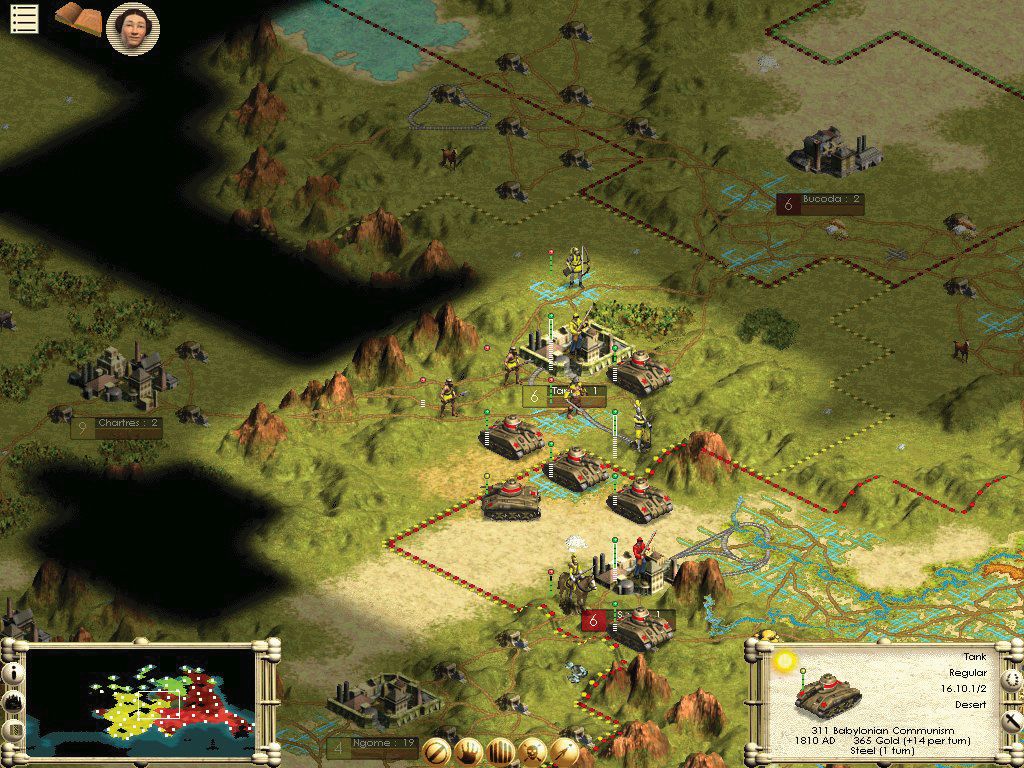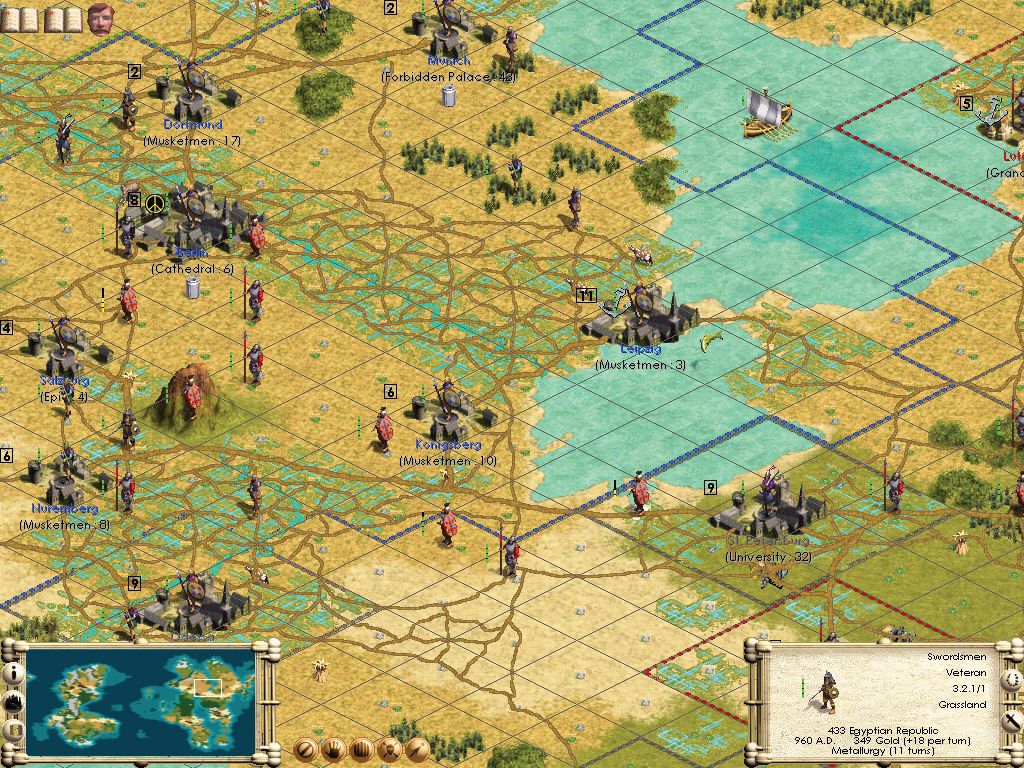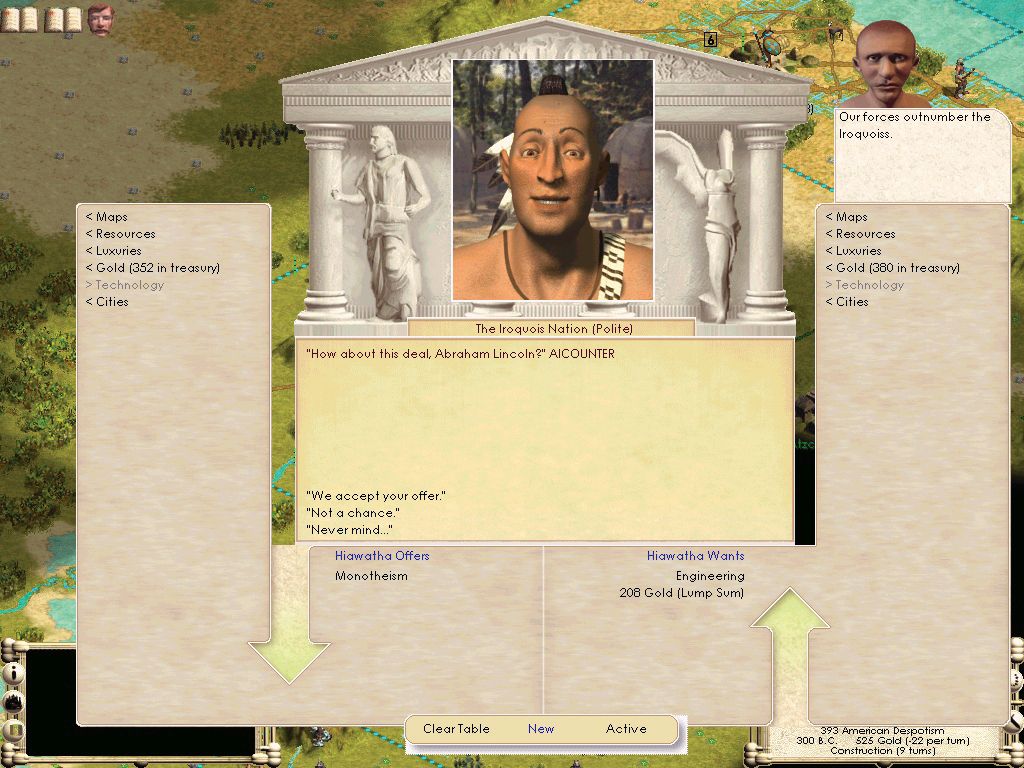The complete history of Civilization
26 years of conquest, building and Montezuma being a bit of a dick.
Civilization III
The series returns home to its creators.

With the unexpected success of Civilization II, another sequel was inevitable, though not before some litigation over naming rights and the launch of Activision’s Civilization: Call to Power series. After suits and countersuits, the licence eventually ended up with Hasbro, and by 2001 the company had been acquired by Infogrames. Firaxis, which was founded by Sid Meier, Brian Reynolds and Jeff Briggs in 1996, could finally work on the next game.
And, once again, the question became: what could possibly be added to such a huge thing? “Sid and I used to joke with each other that after designing Civilization, what else could you do?” Jeff Briggs recollects. “The scope of the game spans all of human history from the agricultural revolution to the present, so we already had everything that any other game could have.”
Luckily, Briggs had been thinking about a new version of Civilization ever since Civilization II had been released in 1996. A lot of the experimentation had already taken place in his head. It was also around that time that he started thinking in terms of thirds. One third the same, one third new and one third improved. This, he says, helped guide them through the experimentation.
Civilization has a tradition of having a different lead designer for each entry in the series, but this started out as a coincidence. With the original Civilization, Meier felt he had poured everything into that game, so Brian Reynolds took over. The idea was for him to lead development on Civilization III, as well. “We originally planned for Brian to lead the development and design of Civ III, but he decided to start Big Huge Games instead and left Firaxis before development really got started. So I was left as the default designer—exciting and intimidating. Luckily, I had a list of features that I wanted to integrate into the game already.”


Jeff Briggs
As well as designing Civilization III, Briggs cofounded Firaxis and is also a composer.
One of those features was civilisations that had unique hooks which went beyond aesthetics. In Colonization, which Briggs worked on with Reynolds, Meier and Doug Kaufman, each faction had a sort of starting ‘power’, and he wanted to tap into that. “I looked at the time in history that each of the civs had achieved some level of dominance and tried to identify units and capabilities that would signify that moment in their history. This meant that a civ would have a slight advantage during their historical prime time and shape the player’s strategy to some extent.”
Briggs wanted to expand the game to include elements that weren’t 4X concerns. He considered civilisation as not just domination on a military and control basis. Thus, culture was introduced, making border expansion a function of shared cultural experiences. Systems for ‘Great People’ were also designed, along with works of art, music and architecture, but many of them would be dropped before development concluded due to resource and time constraints. What didn’t make it, however, found life in later games.
The biggest gaming news, reviews and hardware deals
Keep up to date with the most important stories and the best deals, as picked by the PC Gamer team.
The constraints did mean that the multiplayer side of things wasn’t ready for launch, unfortunately. If they’d waited, the game would have been delayed by a year. But Briggs doesn’t recall any serious issues or obstacles that impeded development, and with the hiring of eventual Civilization IV designer Soren Johnson, more work could be done.
He does wish he’d removed the corruption system, however, which created an obstacle when it came to making large empires with cities spread out across great distances. “Corruption and waste had been factors in Civ and in Civ II as well. I wish I had removed it from Civ III altogether. To be honest, I don’t recall it ever coming up during development as a problem. I think we all just accepted it as a part of the system and we were a little afraid to mess with it. Oops.”

While Civilization III proved to be one of the more divisive games among veteran players, it was another success for the series. Briggs thinks that there’s something fundamental about the franchise that keeps people coming back.
“It is the go-to game for history-of- the-world games. Several others have tried to steal this mantle but they’ve usually tried to ‘improve it’ in ways that go against the simple elegance of Sid’s original turn-based seeding of future events system. Improving graphics, adding new systems, expanding the definition of the game to include more and more elements of human history—all of this has kept it fresh.”

Fraser is the UK online editor and has actually met The Internet in person. With over a decade of experience, he's been around the block a few times, serving as a freelancer, news editor and prolific reviewer. Strategy games have been a 30-year-long obsession, from tiny RTSs to sprawling political sims, and he never turns down the chance to rave about Total War or Crusader Kings. He's also been known to set up shop in the latest MMO and likes to wind down with an endlessly deep, systemic RPG. These days, when he's not editing, he can usually be found writing features that are 1,000 words too long or talking about his dog.

